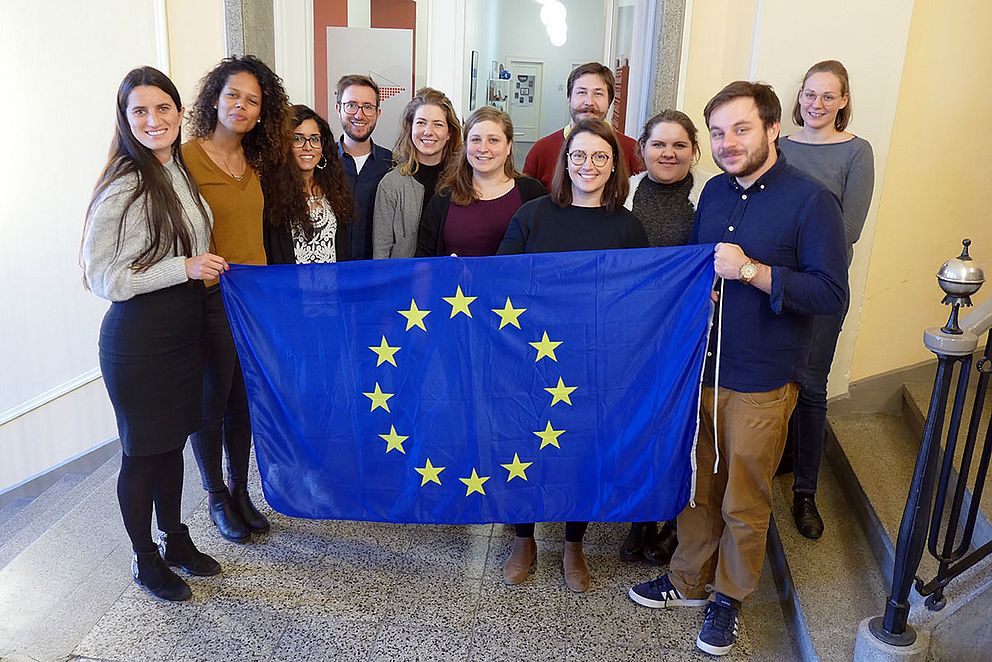First trio meeting of the EU Council Presidency

Foto: Michael Scholl/DBJR (CC0)
In the second half of 2020, the next cycle for the trio presidency of the Council of the European Union will begin. Germany will be the first to take over the Council Presidency, followed by Portugal and Slovenia. In preparation for the trio presidency, representatives of the three Member States will meet in Berlin to make initial general arrangements. Initially, ministries, national agencies and the youth councils of the countries will meet separately. The second step will be a joint exchange in the Federal Ministry for Family Affairs, Senior Citizens, Women and Youth.
The meeting of the youth councils takes place in the premises of the DBJR. It is intended to lay the foundations for cooperation and to make initial arrangements for meaningful and coherent youth participation with an impact at European level. The focus will be on the different elements and the course of the youth dialogue, in which the youth councils play a decisive role. We are looking forward to our guests from Slovenia and Portugal and to a good cooperation.
The involvement of civil society is central to the success of the Council Presidency. Against this background, we are also organising a meeting of the national youth councils, which will take place on 4 and 5 July 2020 on the fringes of the EU Youth Conference in Berlin. At the biannual EU Youth Conferences, young people enter into a Youth Dialogue with political leaders at European level. For this purpose, they meet in the country holding the Presidency of the Council of the European Union within the framework of the EU Youth Strategy. In the second half of 2020, we as DBJR will organise the Youth Conference in Germany. The aim of the conference is to discuss the results of the EU Youth Dialogue in the Member States and to influence European youth policy.